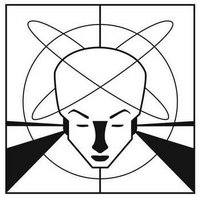Alchemy
In the history of science, alchemy (Arabic: الكيمياء, al-kimia) refers to both an early form of the investigation of nature and an early philosophical and spiritual discipline, both combining elements of chemistry, metallurgy, physics, medicine, astrology, semiotics, mysticism, spiritualism, and art all as parts of one greater force. Alchemy has been practiced in Mesopotamia, Ancient Egypt, Persia, India, and China, in Classical Greece and Rome, in Muslim civilization, and then in Europe up to the 19th century—in a complex network of schools and philosophical systems spanning at least 2500 years.
Western alchemy has always been closely connected with Hermeticism, a philosophical and spiritual system that traces its roots to Hermes Trismegistus, a syncretic Egyptian-Greek deity and legendary alchemist. These two disciplines influenced the birth of Rosicrucianism, an important esoteric movement of the seventeenth century. In the course of the early modern period, mainstream alchemy evolved into modern chemistry.
Today the discipline is of interest mainly to historians of science and philosophy, and for its mystic, esoteric, and artistic aspects. Nevertheless, alchemy was one of the main precursors of modern sciences, and many substances and processes of ancient alchemy continue to be the mainstay of modern chemical and metallurgical industries.
Although alchemy takes on many forms, in pop culture it is most often cited in stories, films, shows, and games as the process used to change lead (or other elements) into gold. Also another form that alchemy takes is in the search for the Philosopher's Stone, in which to obtain the ability to transmute gold or to eternal life.
In the history of science, alchemy (Arabic: الكيمياء, al-kimia) refers to both an early form of the investigation of nature and an early philosophical and spiritual discipline, both combining elements of chemistry, metallurgy, physics, medicine, astrology, semiotics, mysticism, spiritualism, and art all as parts of one greater force. Alchemy has been practiced in Mesopotamia, Ancient Egypt, Persia, India, and China, in Classical Greece and Rome, in Muslim civilization, and then in Europe up to the 19th century—in a complex network of schools and philosophical systems spanning at least 2500 years.
Western alchemy has always been closely connected with Hermeticism, a philosophical and spiritual system that traces its roots to Hermes Trismegistus, a syncretic Egyptian-Greek deity and legendary alchemist. These two disciplines influenced the birth of Rosicrucianism, an important esoteric movement of the seventeenth century. In the course of the early modern period, mainstream alchemy evolved into modern chemistry.
Today the discipline is of interest mainly to historians of science and philosophy, and for its mystic, esoteric, and artistic aspects. Nevertheless, alchemy was one of the main precursors of modern sciences, and many substances and processes of ancient alchemy continue to be the mainstay of modern chemical and metallurgical industries.
Although alchemy takes on many forms, in pop culture it is most often cited in stories, films, shows, and games as the process used to change lead (or other elements) into gold. Also another form that alchemy takes is in the search for the Philosopher's Stone, in which to obtain the ability to transmute gold or to eternal life.

0 Comments:
Post a Comment
Psychologist